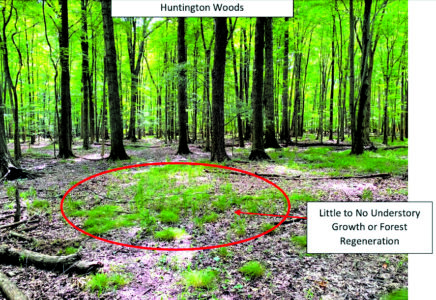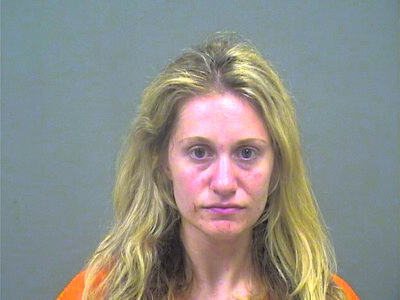Receiver appointed for city SOBE plant
YOUNGSTOWN — A judge granted the Public Utilities Commission of Ohio’s motion to appoint a receiver to take control of SOBE Thermal Energy Systems LLC, which isn’t able to provide utility service to 27 downtown buildings.
Mahoning County Common Pleas Court Judge Anthony Donofrio on Friday approved the PUCO’s motion for the appointment of a receiver, selecting Reg Martin, who specializes in receiverships and business solvency.
Martin, who lives in the Columbus area, served as receiver from 2017 to 2019 when the downtown utility, then operated by Youngstown Thermal LLC, financially failed.
The PUCO specifically requested Martin for the job, said Matt Schilling, PUCO spokesman.
“We’re pleased the court took the action and we’ll move forward,” Schilling said. “We hope the utility provides safe, adequate and reliable service.”
Martin is in charge of SOBE effective immediately.
Donofrio’s judgment entry appointing Martin reads that he “finds the PUCO has established by clear and convincing evidence that SOBE is in imminent danger of insolvency and that a receiver should be immediately appointed to manage all SOBE’s affairs.”
In addition to appointing Martin, Donofrio also authorized the Columbus-based law firm of Strip, Hoppers, Leithart, McGrath & Terlecky – specifically naming Kenneth R. Goldberg – as legal counsel for the receiver.
“The receiver shall be given the full authority permitted by law to carry out the duties of such a receiver,” Donofrio wrote.
He added: “The receiver is authorized to enter, take possession of, manage, operate, protect and have complete and exclusive charge and control of all of the assets of SOBE, including but not limited to all real property, inventory, equipment, accounts, revenues” and “any other property of any nature whatsoever that is in the possession, custody or control of SOBE.”
Schilling said, “We certainly hope there is a viable solution for long-term service to continue.”
Martin couldn’t be reached Friday to comment.
In a Sept. 19 court filing, Julian P. Johnson, an assistant attorney general filing on behalf of the PUCO, wrote that a receiver was needed because of the “likely seizure” of a mobile steam plant that is keeping SOBE operating and because of “SOBE’s outstanding debts, SOBE is in imminent danger of insolvency.”
The PUCO on Sept. 18 ordered Attorney General Dave Yost to seek appointment of a receiver for SOBE because of the company’s inability to continue to provide heating, cooling and hot water services to its customers at 27 downtown buildings, including two buildings with 90 residents, without a rented mobile steam plant.
Without the mobile plant “SOBE will be unable to provide utility service to any of its customers,” according to the PUCO court filing.
Wabash Power Equipment Co., a Wheeling, Illinois, company owed $383,214 by SOBE for nonpayment of the rented mobile steam plant, could repossess the equipment – which would shut down SOBE’s operations – as soon as Tuesday under an agreement the city of Youngstown reached Sept. 16 in court. The city agreed to pay $20,000 to Wabash to keep the equipment onsite until 8 a.m. Tuesday.
Jason Small, a city senior assistant law director, said Friday that Youngstown has no intentions of paying any additional money to Wabash and the future of the SOBE facility at 205 North Ave. is in the hands of the PUCO.
“We’ll be monitoring the Public Utilities Commission,” Small said. “It is their responsibility going forward to ensure continuity and service. It is my understanding they are working on that right now. The Public Utilities Commission will work to monitor the system citywide. The continuation of service is the responsibility of the receiver and the Public Utilities Commission.”
After Tuesday morning, Small said, “The city is only a customer. It is up to the Public Utilities Commission to keep the plant operating.”
Small said the PUCO and the attorney general’s office “moved quickly on this. The city is pleased with the results.”
Andy Resnick, the city’s spokesman, said, “We’re glad to see the Public Utilities Commission is moving this forward. Our priority remains working to ensure our residents and businesses downtown have no interruption in service.”
SOBE breached a lease agreement for the steam plant at its Youngstown facility. SOBE signed a lease in November 2019 to use Wabash’s steam plant at $19,500 a month.
A federal judge ruled Jan. 29 in favor of Wabash’s motion for default judgment of $383,214 when SOBE never responded to the case. Wabash then filed May 23 in Mahoning common pleas to repossess and remove the equipment after SOBE refused many demands for the property.
The repossession was delayed a few times since Donofrio granted a default judgment Aug. 21 against SOBE, which didn’t respond to the lawsuit.
In that Aug. 21 ruling, Donofrio ordered SOBE within 24 hours to “cease all use and operations of the equipment and completely and permanently shut down, turn off and disconnect the equipment” and ordered the sheriff’s department to seize it.
Donofrio on Sept. 9 rejected an Aug. 29 motion by the PUCO to reopen the docket and seek a stay of execution in the case won by Wabash. Wabash had responded that it had voluntarily permitted SOBE to use its equipment until at least Sept. 16.
The city on Sept. 9 filed a motion to intervene “to ensure the health, safety and welfare of residents and businesses in downtown Youngstown,” and sought a stay of the judgment of at least 30 days. A settlement was reached Sept. 16 for the city to pay $20,000 to Wabash to keep the mobile steam plant at SOBE until the end of the month.
When Martin served as receiver for Youngstown Thermal, SOBE’s predecessor, he unsuccessfully tried to convince the city to purchase the utility.
It is highly doubtful that the city would consider purchasing it after two companies failed to effectively operate it in recent years.
Martin was named receiver of Youngstown Thermal in 2017 after the PUCO was informed by the company’s CEO that the business was financially failing, which could have caused an energy crisis downtown.
By 2017, Youngstown Thermal, which had numerous problems for years providing service, could no longer ensure adequate service to its customers and was in danger of insolvency when the PUCO stepped in and appointed Martin.
As receiver, Martin received permission from the PUCO for an additional surcharge on customers.
Martin was the receiver for two years before he worked out a deal with SOBE, based in Dublin, Ohio, to manage the facility in 2019. SOBE purchased the assets for $250,000 in November 2021.
But SOBE has since experienced a number of financial problems and can no longer effectively provide heating, cooling and hot water service to its customers.
This is the oldest district heating and cooling system in the country, having begun operations in 1895. It was designed to generate and distribute steam to heat downtown businesses using coal as its main source of fuel.
SOBE had proposed a plan to convert rubber tire chips into synthetic gas at its Youngstown facility, which is now dead.
The Ohio Environmental Protection Agency granted a permit on Feb. 14, 2024, to allow SOBE to move ahead with that plan. It never did.
The city objects to the permit and filed an appeal March 15, 2024, stating the EPA’s decision to issue a final permit “is unreasonable and lacking a valid factual foundation, and / or unlawful and not in accordance with state law.” The city asked the commission to order the state EPA director to revoke the permit.
The city appealed the EPA decision to grant SOBE a permit to the Ohio Environmental Review Appeals Commission. A law firm that represented SOBE in that case asked July 15 to withdraw, likely because it wasn’t being paid for its services.
Because of SOBE in receivership, that case hasn’t moved and likely won’t.
City council on Nov. 20 approved a second one-year moratorium on the process SOBE planned to use. Council members say the process is dangerous, untested and harmful to the environment. They also said they don’t plan to ever lift the moratorium that was initially passed Dec. 20, 2023.





